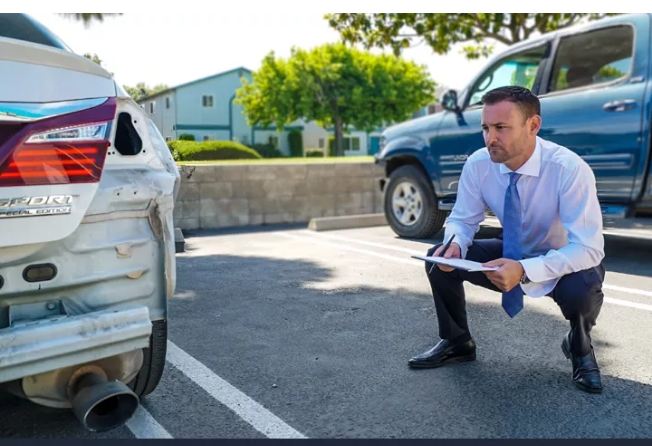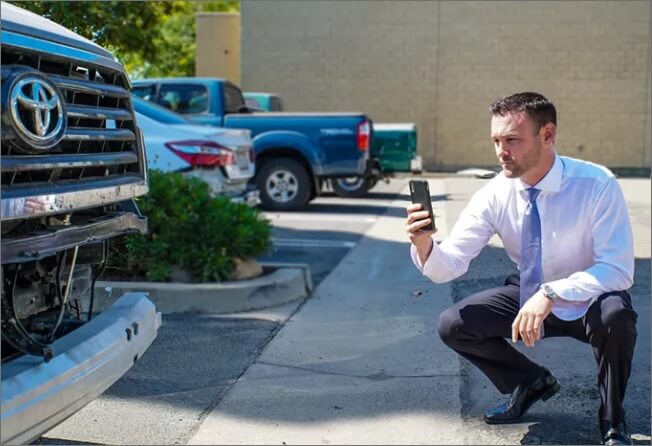Browse Services:
25+ YEARS OF EXPERIENCE
Our auto accident lawyers in California have over 25 years of combined experience. You can count on our expertise and our dedication to helping you achieve the best possible outcome.
99% WIN RATE
Our California accident firm maintains an impressive 99% success rate, even while accepting difficult cases other law firms have turned away.
NO UPFRONT FEES
We’re not afraid of going to trial, and insurance companies know this. If it’s in your best interest to take your case before a jury, we’ll always be ready to speak as your voice in civil court.
If you were injured during a traumatic car accident in the Golden State, contact a top-rated car accident lawyer from our firm at (866) 622-6491 urgently. Our team of award-winning auto accident attorneys in California is at your disposal to ensure your car accident personal injury claim is handled effectively.
It all starts with a free consultation. We’ll go over the details of your accident, determine the viability of your case, get you seen by an experienced doctor, and provide you with valuable advice regarding the next steps you should take — all at no cost to you.
Support from our experienced car accident injury lawyers in California ensures you get the highest settlement possible by avoiding common pitfalls, such as:
By enlisting a May Firm auto accident attorney, California residents and visitors alike get our expert services on a contingency fee basis. That’s legal representation you can trust with zero upfront fees.
Most of the cases we take on resolve in settlements out of court, as it’s often most ideal for our clients. Favorable settlements eliminate the stress that a drawn-out court battle, and allow our clients to focus on getting back to their normal lives.
We’re able to achieve such efficient results because of our hands-on approach and attention to detail. Each case is personal to us. We take pride in going above and beyond to handle all of your family’s needs during this difficult time.

If I ever need a lawyer again, I’m calling the May Firm. I was rear ended and had a ton of bills. They told me what my rights were and that they would take care of me. All I had to do was get to physical therapy. They did everything, and I ended up with a very nice settlement and a new car. Thank you! You exceeded my expectations!
AMANDA ALLEN
Car Accident
“A friendly and professional firm. Always answered questions quickly. Highly recommended to anyone who needs a personal injury lawyer. Extremely satisfied with the outcome.”
linda hughes
Car Accident
Natalie Garcia
Bicycle Accident









Despite what they may claim, both your insurer and the insurance company of any other involved parties will attempt to settle your claim for the lowest dollar amount possible.
Our team of auto accident lawyers in California at the May Firm knows that being injured in an accident can affect much more than the vehicle you drive. Medical bills, missed work, caring for dependents, and emotional suffering all add up just as quickly as the repair bill from your mechanic. We’re committed to getting you the highest settlement we can to help cover all these peripheral costs. Also, we won’t accept payment unless a case is won.
The most recent data available from the National Highway Traffic Safety Administration (NHTSA) shows that about 2.4 million Americans suffered injuries in police-reported auto accidents during 2022 . With motor vehicles being the primary transportation for most Americans, the risk of a crash is an ever-present possibility, even for the most careful motorists.
Despite this, many drivers are unaware of what steps to take if they find themselves involved in a collision. That’s why it’s critical for you get in touch with an auto accident attorney in California from the May Firm as soon as possible. In the event of a crash, our expert team will guide you through the legal process from start to finish to ensure you have a timely personal and financial recovery so you can get back on the road.

No matter what type of car accident you were involved in, our California car accident attorneys can help. We believe every victim has the right to be represented by a top-rated car accident injury lawyer in California. We’ve won large settlements for the victims we’ve represented because we always dig beneath the basics on the surface to discover all the facts of your case.
By examining police records, talking to witnesses, and re-creating the scene of the crash, the top-rated California car accident attorneys at the May Firm equip themselves with the information they need to serve as your best advocate. We’ll act as your liaison with doctors, insurance companies, and the police so you can focus on getting the proper medical care.
Keep in mind that car accident injuries may not be immediately apparent. Therefore, it’s incredibly important that you’re examined by a doctor with the right background and experience to recognize existing and potential complications resulting from your accident.
According to the NHTSA, at any given time during 2023, about 463,385 motorists were using cellphones or other portable electronics while driving.
In 2022, driver distractions accounted for about 290,000 injuries and 3,308 deaths. Drivers should make every attempt to minimize distractions, including eating or drinking, reading maps, adjusting a dashboard radio or entertainment console, and other careless behaviors. If you were involved in an accident because of the negligence of a distracted driver, give us a call at (866) 622-6491. The experts at our California accident firm will offer a free consultation and help you determine next steps.

“If you or a loved one has been injured following a car accident, we are here to help. You focus on getting better; we’ll handle the rest.”
Common car accident injuries include bruising, lacerations, bone breaks, and sprains. But as previously mentioned, injuries may not be obvious at the time of the accident. It’s extremely important to get medical attention after a crash.
At minimum, a healthcare professional can help you manage any injuries or other medical issues that reveal themselves in the days following your accident. Injuries to the head or spinal cord may be less apparent initially, but can cause serious complications down the line.
Also, seeking medical care can greatly help any case for compensation you end up pursuing. A May Firm car accident lawyer in California will need documentation confirming that you sought treatment after an accident. These records can help ensure that you aren’t left solely responsible for covering expensive medical treatment for your injuries.
“Rob May and his team achieved over and above what I ever anticipated. I am thankful I found them, and I hold them in the highest esteem. Should you ever need a conscientious and diligent personal injury lawyer, I strongly recommend Robert May. He’s awesome. Thanks, guys, for your patience and professionalism. You rock!”
JEANNE MELLO
Dog Bite & Attack
In 2022, 13,524 people died in crashes resulting from drunk driving in the US, according to the most recent NHTSA data. More than 400,000 suffered injuries due to drunk-driving accidents. In California alone, 38% of the state’s 4,428 auto fatalities involved an alcohol-impaired driver.
If you are the survivor of a collision with a drunk driver, get in touch with our auto accident attorneys in California to see if we can help you get your life back on track. We’re affiliated with proven local medical experts who can ensure your recovery goes as smoothly as possible. Meanwhile, we go to work to get you the greatest compensation we can for damages and medical bills.
Car accidents are frightening and sometimes overwhelming experiences. Your priority is ensuring that you and others at the scene are safe.
Don’t feel compelled to admit liability, and move away from the other driver if there’s a chance they could turn hostile or aggressive. Seek legal help as soon as possible from a car accident lawyer in California.
Due to the combination of spiking adrenaline and emotional stress, it’s easy to get caught up recounting details of a car accident to whomever is present and willing to lend an ear.
You should always cooperate with local authorities and law enforcement, but do your best to keep your details as objective as possible. Things you say may be taken out of context or misinterpreted, potentially depicting as more at fault than you really were.
Establishing fault is critical to any case. Even if you are confident the accident was not your fault, don’t go out of your way to accuse the other party. Leave that aspect of the case for the experts at our California accident firm to handle.

“If you were in a motor vehicle accident, it is your responsibility to seek legal counsel and refer aggressive or inappropriate questions to your attorney. Answer questions directly and objectively. Resist the urge to provide additional details. Your legal team will help you communicate the facts of your accident correctly.”
ROBERT MAY
Attorney | Founder
After being involved in a car accident, the very first thing that you should do is seek medical care. Your health is the most important thing. Everything else is secondary.
Even if you don’t feel like you’ve suffered any injuries, it’s important that you go to the hospital or an urgent care facility and allow medical staff to check you out. Some injuries, like those affecting the brain and spinal cord, don’t always seem obvious right away. If not promptly diagnosed and properly treated, injuries like these can get worse and cause serious issues down the line. Take care of yourself!
After a doctor has seen you, take some time to write down everything that you can remember about your car accident (either on paper or electronically).
It’s important to document your side of the story while your memory is still clear. These details can be very helpful to your car accident injury lawyer in California, and you don’t want to risk forgetting any important facts about the incident.
If you were injured in an accident caused by someone else, you should contact a personal injury attorney as soon as possible. Navigating a personal injury claim in the legal system can be daunting, and there’s no reason to add more stress to your plate than necessary. The experienced lawyers at The May Firm will take on the person who injured you in court while you focus on your recovery.
When you search for “car accident lawyers near me, free consultation”, you might be unsure who to call. The California car accident attorneys at The May Law Firm have a 99% success rate and have secured over $150 million in damages for our clients. Don’t hesitate to call us to arrange a free case evaluation.
Whatever you do, don’t talk to insurance companies right after you’ve been involved in an auto accident. Instead, call a car accident lawyer in California right away.
Insurance companies, including your own, are not your allies. Auto insurers aim to minimize claims liability as much as possible. In that interest, they may twist your words or misrepresent details of the accident to avoid compensating you for your injuries, the disruption to your life, and expensive medical treatment. Talk to them only as much as you need to. Better yet, let your legal representation from the May Firm take the lead in insurance-related conversations
If you were involved in a car accident that someone else caused, he or she may be responsible for paying your medical bills. If you didn’t cause the accident, there is no reason for you to be crushed by a mountain of medical debt.
Those involved in car accidents often miss work. Doctor appointments are usually scheduled during business hours and can conflict with your work schedule, or you may be too hurt to work if you’ve suffered serious injuries. You may be able to recover the wages that you missed out on as a result of your accident in a personal injury suit.
Being injured can mean serious pain and suffering. If you were hurt in an auto accident, you may be entitled to damages specifically because you suffered pain. These types of damages should be discussed with an auto accident attorney in California.
When you think of filing an accident claim, you might be unsure how much it’ll cost and if you can afford it. If you represent yourself, you’re expected to pay all court costs yourself, which could total tens of thousands of dollars.
The May Firm, however, operates on a contingency basis. We cover the costs of your lawsuit and we’re not reimbursed unless we win your case.
If your case is successful, we typically take an industry-standard percentage of the settlement, which is a regular practice for personal injury lawyers.
The cost of a personal injury lawsuit for an auto accident varies depending on multiple factors, such as the extent of your injuries. Your first step should be scheduling a free consultation with the experienced California car accident attorneys at The May Firm. We can give you answers to your important questions with zero obligation or upfront cost.
There are many factors involved in determining who was responsible for an accident. Even if you think you may be partly to blame, don’t accept fault. You may still be entitled to compensation for your injuries.
California uses a comparative fault system to allocate liability in a personal injury case. Under this system, you are responsible for your own portion of the fault. For example, if you are 30% at fault for the accident and a jury awards $1,000,000 in damages, you’re still entitled to $700,000 of that award. A California car accident defense attorney from the May Firm can help you navigate any complications that may arise if another party is trying to paint you as more at fault than you actually are.
California requires all drivers and passengers to wear seatbelts. If you weren’t wearing your seatbelt, your total settlement may be reduced under the comparative fault system. However, you may still be entitled to compensation for your injuries if the accident was caused by the other person, so don’t let this deter you from seeking the damages you deserve.
Under California law, insurance companies must offer uninsured motorist coverage. This type of insurance is designed to protect you ifyou’re injured by an uninsured or underinsured driver. Because you have to sign a waiver to specifically decline this coverage, you most likely have it.
Car accident laims involving uninsured or underinsured drivers should be filed quickly: You must prove not only that the other driver was at fault, but also that they were uninsured. The auto accident lawyers in California at the May Firm can help you deal with the complexities of uninsured driver claims.
Yes. Even if you were not at fault, you are generally obligated to inform your insurance company whenever you are involved in an accident. Failure to timely notify your insurance company could even result in the termination of your policy . However, before you provide any information, you should speak with a auto accident attorney in California.
It depends.
Many personal injury claims settle out of court. However, if the other side is unwilling to agree to an appropriate settlement amount, you may have no choice but to take your case to trial. If that happens, The May Firm will guide you every step of the way.
If you’ve been in a car accident in the Golden State, you’re entitled to diligent, compassionate legal representation. You need the expertise of personal injury attorneys who understand how to get you the care and financial compensation you deserve. At The May Firm, our auto accident lawyers in California can help. We’ll give you the comprehensive support you need, at no out-of-pocket cost to you.
Call or text for a free consultation at (844) May Firm. As a family-run business, The May Firm understands how damaging a setback a car crash can be, and we want to help. We know the complications that pile up in the wake of an auto accident can quickly feel overwhelming. Let us give you the assistance you need to get back on your feet, and back on the road.

